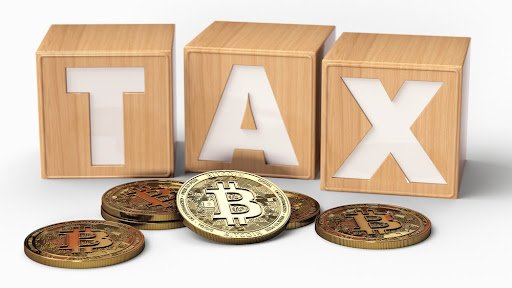Staking has develop into one of the crucial fashionable methods to earn a passive curiosity within the rising crypto ecosystem. Nevertheless, regulators are actually catching up, with the likes of the U.S Securities Alternate Fee (SEC) and Inside Income Service (IRS) narrowing right down to Decentralized Finance (DeFi) tasks. Most of those improvements have been constructed on the Ethereum blockchain and leverage a Proof-of-Stake (PoS) consensus to operate successfully.
As such, the nascent DeFi improvements rely upon staking to maintain their networks operational and safe. Staking replaces the mining strategy utilized by Proof-of-Work (PoW) blockchains with community validators, eliminating the necessity for intensive computational energy. Ideally, Community validators in PoS networks commit their tokens to assist transaction validation and safety in return for community incentives.
With a lot exercise prior to now 12 months, DeFi and staking caught the eyes of world regulators and monetary watchdogs. The IRS is among the many tax businesses that appear to be taking a rigorous strategy and can doubtless have extra authority as soon as the controversial infrastructure invoice comes into motion.
At present, the IRS acknowledges staking rewards as taxable earnings upon token creation. Which means that crypto customers who obtain native tokens for staking their digital property are required to report for taxing as quickly as they obtain the rewards. A stance that goes towards U.S historical past, the place the newly created property is just not subjected to taxable earnings.
Settling the Scores
The uncharted crypto waters have loads of fish to catch, however it now appears that the taxman desires his minimize. Earlier than leaping into the nitty-gritty, it’s to grasp how these staking platforms work and why some stakeholders view them as threats. For that, let’s take the instance of YeFi.one, a DeFi staking platform that enables customers to earn a passive curiosity by depositing crypto property by the YeFi decentralized software (DApp).
In contrast to conventional monetary ecosystems, YeFi.one introduces a decentralized ecosystem the place anybody with a suitable Binance Sensible Chain (BSC) pockets can take part as a node validator. The platform makes use of sensible contracts because the intermediary, with pre-coded situations that permit customers to stake their crypto property for in the future or fifteen days. In return, the YeFi.one stakers are rewarded with community incentives.
This basic instance of a DeFi staking platform brings us again to the difficulty of rewards taxation. At what level are the rewards allotted to YeFi.one stakers taxable? Going by the present IRS strategy, staking rewards allotted to YeFi.one customers must be reported upon token creation, with the taxable earnings pegged on the prevailing market worth of the reward token.
Whereas the IRS seems to have the higher hand, a current submitting within the Tennessee federal courtroom has challenged the taxation of staking rewards upon token creation. The lawsuit was filed by Joshua Jarret, who has been staking on the Tezos blockchain. In accordance with the plaintiff’s legal professional, the IRS has no authority to tax Jarret’s newly minted tokens, provided that they fall beneath new property and will solely be thought of for tax as soon as they’re bought or exchanged.
Like every property, cryptocurrency tokens may be earnings after they’re acquired as cost or compensation. However these newly created tokens are like crops harvested by a farmer — which aren’t taxed till they’re bought.
stated Jarret in a press release.
Crypto Staking Taxes in Different Jurisdictions
It’s not solely within the U.S the place taxes on crypto staking are a contentious challenge. The UK, by Her Majesty’s Income & Customs (HMRC), updated its tax therapy of crypto property to include staking.
This new replace confirmed that passively earned digital property can be taxed beneath capital positive factors or company tax on chargeable positive factors upon discharge to different events. Notably, the HMRC additionally offered further guiding necessities for the crypto property to be topic to tax. The listed elements embrace the diploma of exercise, danger, group, and commerciality.
In Australia, the nation’s tax company ATO acknowledges staking rewards as odd taxable earnings on the time of receipt. Consequently, Australians who obtain community rewards for appearing as validators in PoS blockchain ecosystems should report inside the earnings 12 months they obtain the staking rewards.
Many are nonetheless on the early levels of formulating a complete tax regime for crypto property so far as creating international locations go. It should most likely take a while earlier than they catch on to extra advanced earnings sources comparable to staking.
Closing Ideas
Cryptocurrencies are nonetheless primarily an experimental area of interest; nevertheless, the potential on this upcoming asset class can’t be ignored. This requires stakeholders from all sectors to collaborate in direction of making a sustainable business that performs by the e book. As tax businesses navigate these murky waters, it might be greatest to liaise with business individuals to strike a steadiness. In doing so, cryptocurrencies will doubtless thrive and in the end enhance the tax base of most economies.

















































































































































































































